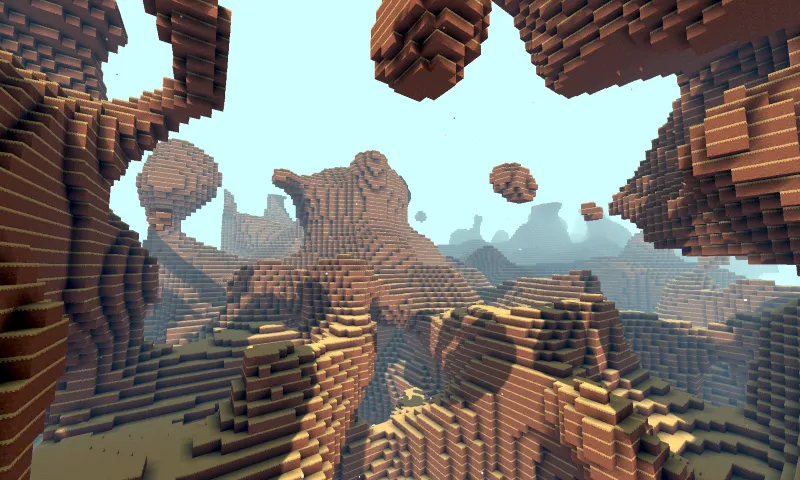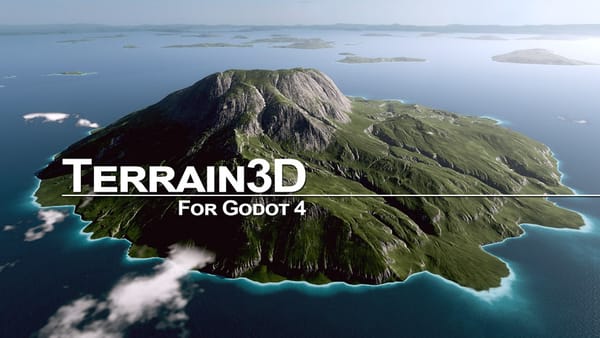Top 13 Open-source Game Servers for Game Developers and Game Studios
Table of Content
Hey there, game dev legends! So, you’ve got this killer idea for a multiplayer game. Maybe it’s an epic battle royale where players fight to survive in a neon-lit cyberpunk world, or perhaps it’s a cozy co-op farming sim that brings people together.
Whatever your vision is, one thing’s for sure—you’re going to need a game server . And no, I’m not talking about just any old server; we’re diving into the wild, wonderful world of open-source game servers. Buckle up, because this is going to be fun.
What Exactly Is a Game Server?
Think of a game server as the invisible conductor of your gaming orchestra. It’s the backbone that keeps everything running smoothly behind the scenes. When players log on to compete, collaborate, or crush each other in glorious combat, the server ensures their actions sync up seamlessly. Without it, chaos reigns supreme—laggy connections, mismatched gameplay states, and frustrated players rage-quitting faster than you can say “patch notes.”
But here’s the kicker: building a robust game server from scratch can feel like trying to climb Mount Everest in flip-flops. That’s where open-source game servers come in—they’re like having a team of coding superheroes handing you pre-built tools so you can focus on what really matters: making your game unforgettable.
Why Open-Source Game Servers Are a Game Changer
Let’s cut to the chase—here’s why open-source game servers are an absolute win for game developers like you:
1. Budget-Friendly and Stress-Free
If you’re an indie developer or part of a smaller studio, every dollar counts. Open-source game servers are completely free to use, which means you can save your hard-earned cash for things that matter most—like crafting stunning visuals, composing epic soundtracks, or stocking up on coffee for those late-night coding sessions. Who doesn’t love free stuff, right?
2. Endless Customization
These servers aren’t cookie-cutter solutions—they’re flexible tools built to adapt to your vision. Want to tweak how multiplayer matchmaking works? Go for it. Need to add custom leaderboards to fuel competition? No problem. Or maybe you want detailed statistics to understand how players are interacting with your game? Done. With open-source code, you’re in the driver’s seat, and the possibilities are endless.
3. Built-In Multiplayer Magic
Multiplayer is where the magic happens, and open-source game servers make it easy to bring players together. Whether it’s cooperative gameplay, competitive battles, or massive online worlds, these servers handle the heavy lifting so you can focus on creating unforgettable experiences.
4. Leaderboards That Keep Players Hooked
Everyone loves climbing the ranks, and open-source game servers let you integrate dynamic leaderboards effortlessly. Show off top players, track high scores, or create seasonal challenges that keep your community engaged and coming back for more.
5. Stats and Analytics to Level Up Your Game
Ever wondered how players are really interacting with your game? Open-source game servers come equipped with powerful analytics tools that give you deep insights into player behavior. Which levels are they loving? Where are they getting stuck? What features are driving engagement? Armed with this data, you can fine-tune your game to make it even better.
6. Community Support You Can Count On
One of the coolest perks of open-source projects is the vibrant communities behind them. These are passionate developers just like you, sharing tips, mods, and updates to help each other succeed. It’s like having a team of mentors cheering you on—and if you contribute back, you’ll feel awesome knowing you’ve helped others too.
7. Scalability That Grows With You
Whether you’re testing a small prototype or preparing for a global launch with thousands (or millions!) of players, open-source game servers have your back. They’re designed to scale seamlessly, so you can start small and expand as your player base grows.
Why Do You REALLY Need a Game Server?
Picture this: your game launches, and within hours, thousands of players flood in. Sounds amazing, right? But wait—what happens if two players try to claim the same loot chest simultaneously? Or worse, someone hacks the system and ruins the experience for everyone else? A solid game server prevents these disasters before they happen.
It also opens doors to features that take your game from “cool” to “legendary.” Multiplayer matchmaking? Check. Real-time chat systems? Double check. Dynamic leaderboards that spark fierce competition? Triple check. Trust me, once you harness the power of a game server, you’ll wonder how you ever lived without it.
However, if you are looking for a Minecraft Game Server, you can look at our post in the following link:

Ready to Level Up Your Game? Here Are 13 Awesome Options
Now comes the exciting part—the list! Below, I’ll introduce you to 13 top-notch open-source game servers that cater to every type of developer. From lightweight solutions perfect for indie devs to heavy-duty platforms built for AAA-quality games, there’s something here for everyone. Each option has its own unique flair, quirks, and strengths, so grab your favorite beverage, settle in, and prepare to meet your new best friend in game development.
Stay tuned, because by the end of this article, you’ll have all the info you need to pick the perfect server for your project—and trust me, your future self will thank you. Let’s dive in, shall we?
1- Lance
Lance is a real-time multiplayer game server built on Node.js. It syncs client and server game states, offering smooth visuals with efficient networking, interpolation, and physics. Designed for simplicity, it’s highly configurable, easy to debug, and optimizes both player experience and development. Perfect for crafting seamless multiplayer games! 🚀
Features
- Focus on writing your game. Lance takes care of the netcode
- Can support any type of game or genre
- Optimized networking
- TCP via websockets
- Communication is packed and serialized into binary
- Automatic handling of network spikes with step correction
- Intelligent sync strategies for lag handling
- Extrapolation (client side prediction) with step re-enactment or:
- Interpolation for optimal object motion
- Tools for debugging and tracing
- UDP via WebRTC
- Full-stack testing suite
- Replay saving
- More physics engines
2- Pterodactyl
Pterodactyl® is a free, open-source game server management panel built with PHP, React, and Go. Designed with security in mind, Pterodactyl runs all game servers in isolated Docker containers while exposing a beautiful and intuitive UI to end users.
It supports several games by default that includes:
- Minecraft — including Paper, Sponge, Bungeecord, Waterfall, and more
- Rust
- Terraria
- Teamspeak
- Mumble
- Team Fortress 2
- Counter Strike: Global Offensive
- Garry's Mod
- ARK: Survival Evolved
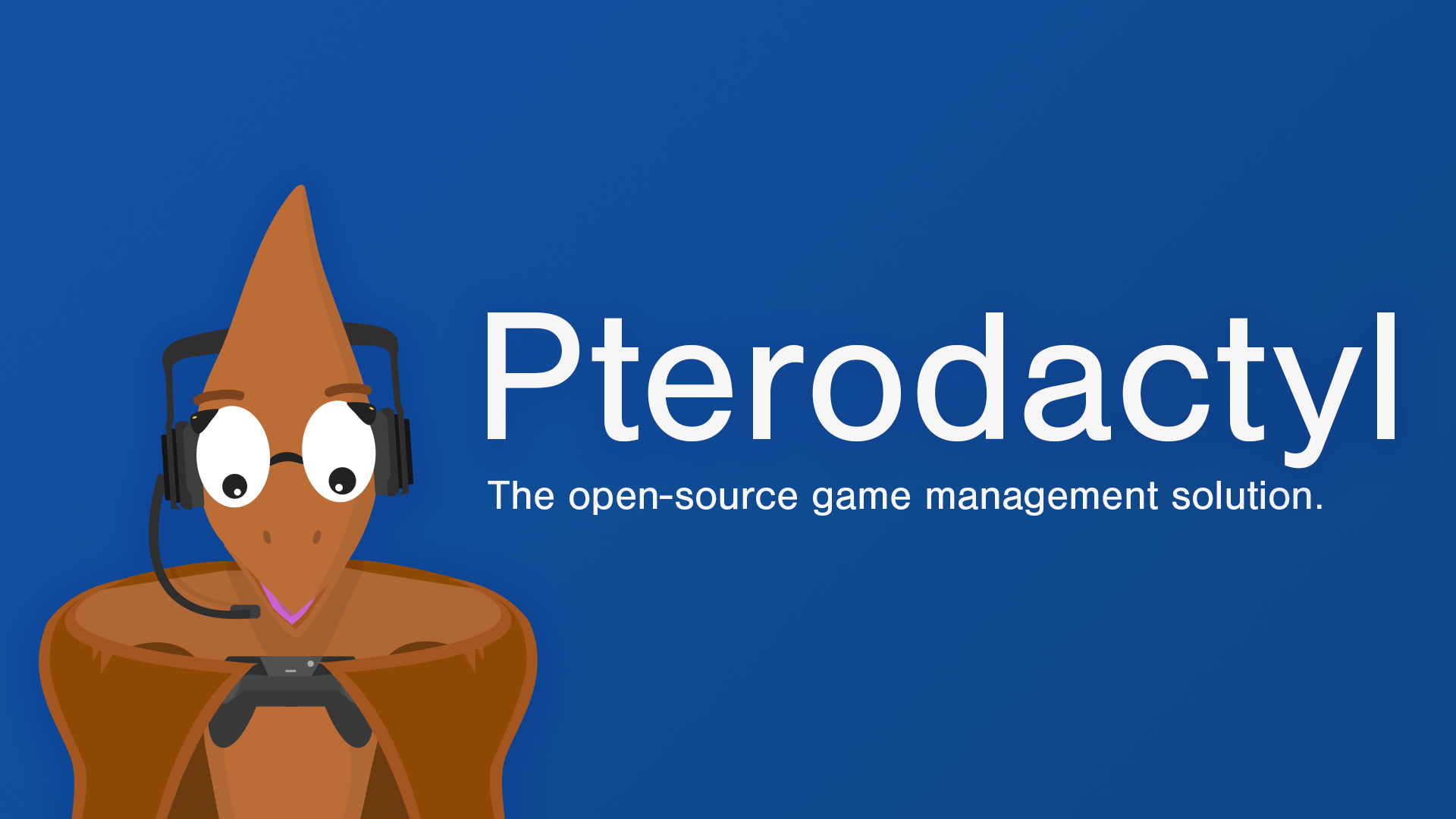
3- Nakama
Nakama is a popular distributed server for social and realtime games and apps.
Features
- Users - Register/login new users via social networks, email, or device ID.
- Storage - Store user records, settings, and other objects in collections.
- Social - Users can connect with friends, and join groups. Builtin social graph to see how users can be connected.
- Chat - 1-on-1, group, and global chat between users. Persist messages for chat history.
- Multiplayer - Realtime, or turn-based active and passive multiplayer.
- Leaderboards - Dynamic, seasonal, get top members, or members around a user. Have as many as you need.
- Tournaments - Invite players to compete together over prizes. Link many together to create leagues.
- Parties - Add team play to a game. Users can form a party and communicate with party members.
- Purchase Validation - Validate in-app purchases and subscriptions.
- In-App Notifications - Send messages and notifications to connected client sockets.
- Runtime code - Extend the server with custom logic written in Lua, TypeScript/JavaScript, or native Go code.
- Matchmaker, dashboard, metrics, and many more.
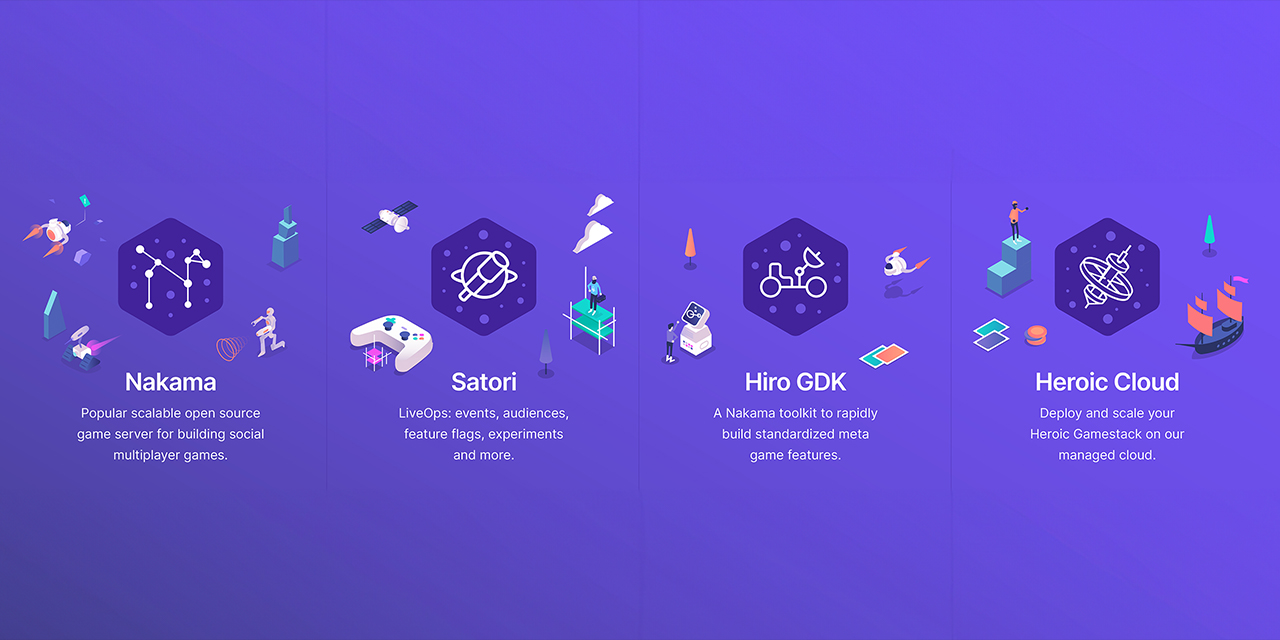
4- PufferPanel
PufferPanel is a web-based Game Server Management System. PufferPanel allows you to manage multiple different game servers all from one central location. You can give other users their own servers or allow them to access to your servers.
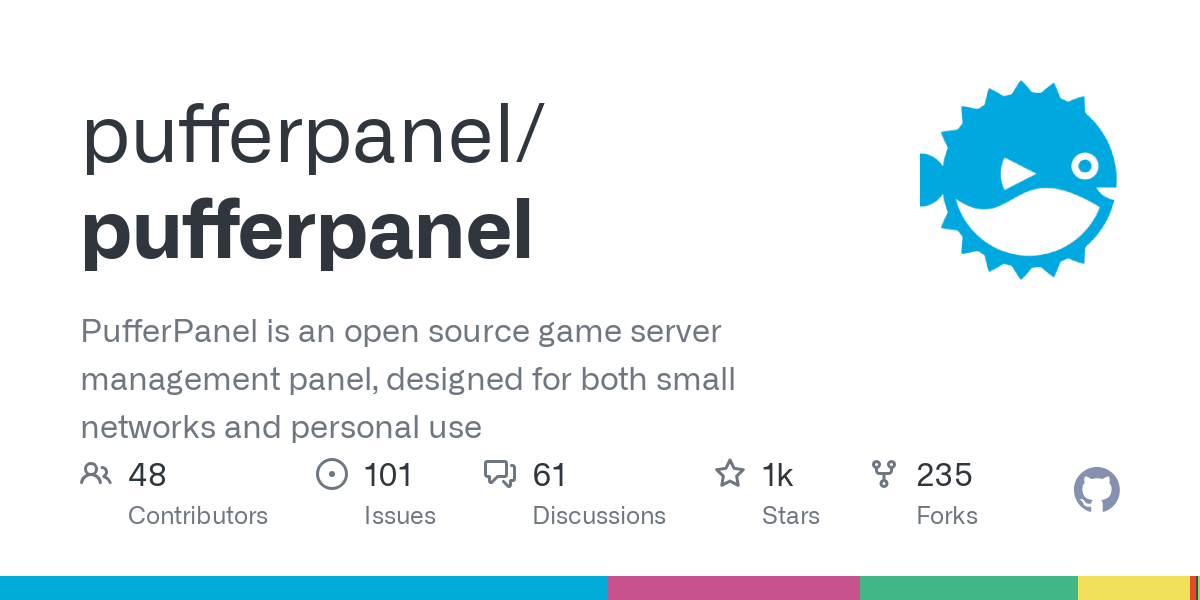
5- Agones
Agones is a free and open-source Dedicated Game Server Hosting and Scaling for Multiplayer Games on Kubernetes.
Features
- Define a single
GameServer, and/or large game serverFleetswithin Kubernetes - either through yaml or via the API - Manage GameServer lifecycles - including health checking and connection information.
FleetAutoscaling capabilities that integrate with Kubernetes' native cluster autoscaling- Gameserver specific metric exports and dashboards for ops teams
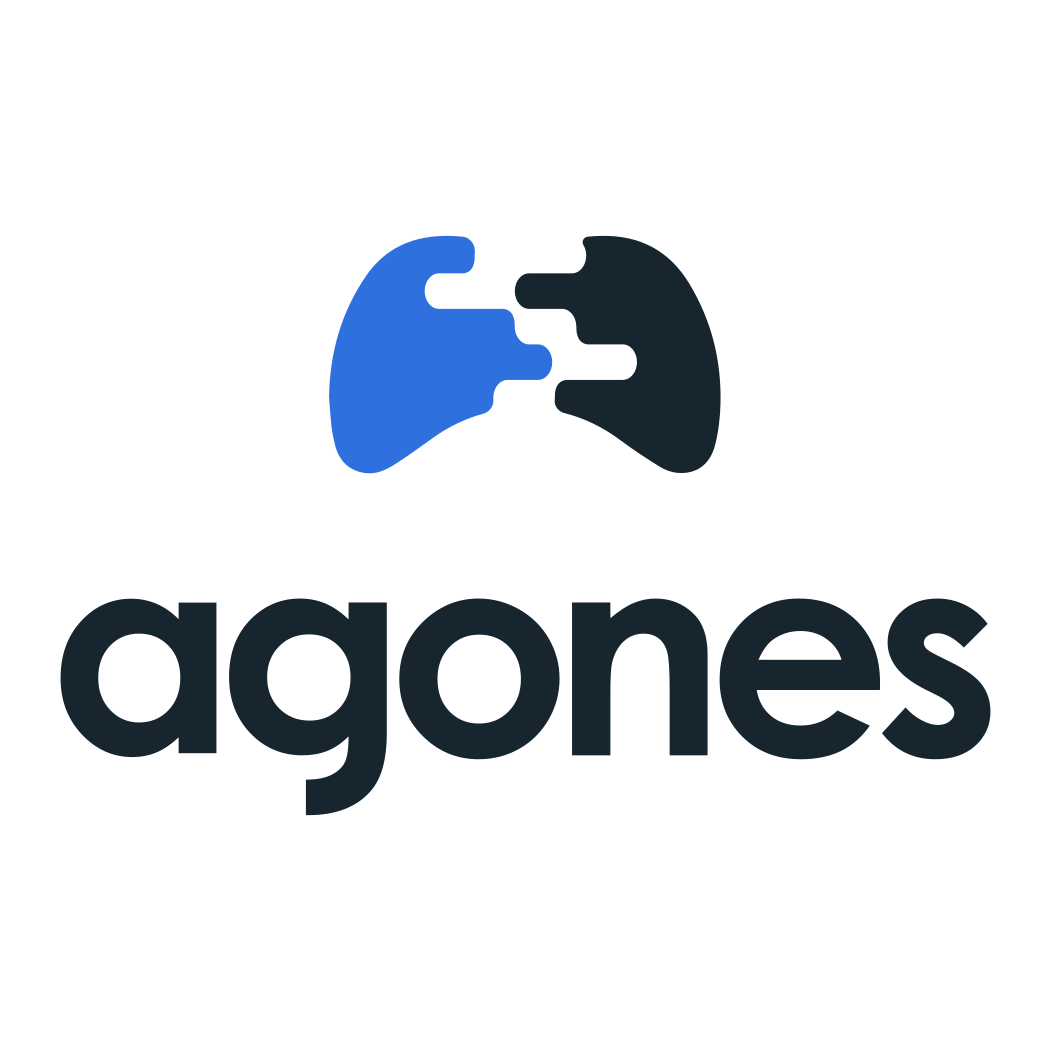
6- Moon
Moon is a lightweight game server framework based on the actor model. One worker thread can have one or more actors (services), which communicate with each other through message queues.
It works seamlessly on Windows, Linux and macOS, uses Lua for scripting and supports several networking protocols.
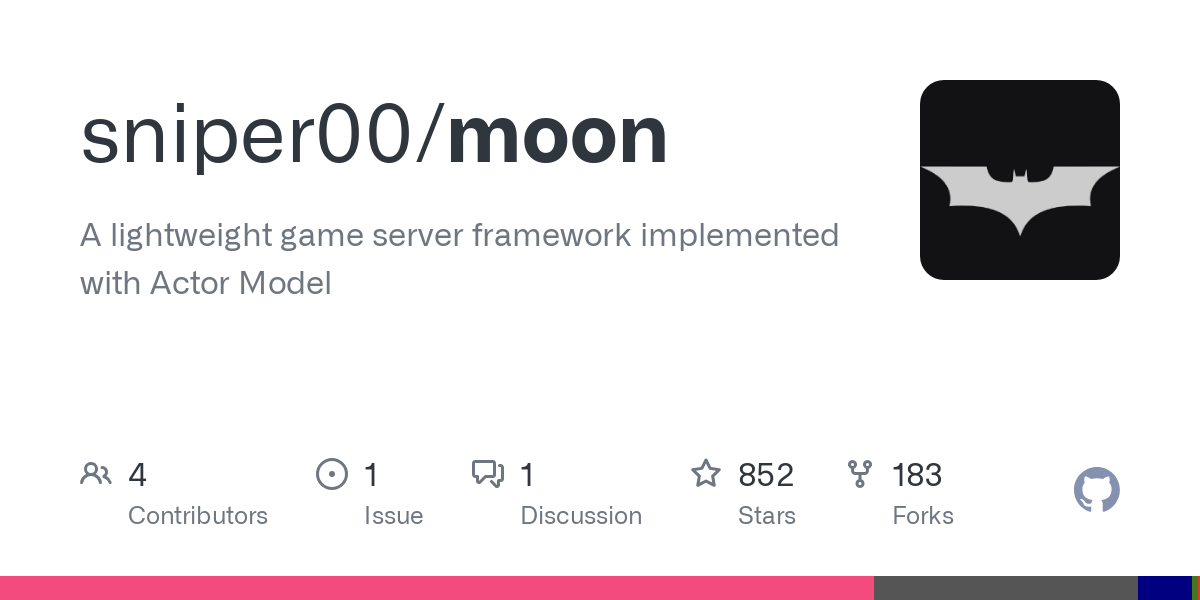
7- GoWorld
This scalable, distributed game server engine, built in Golang, supports hot reload for seamless updates by restarting the server process. It efficiently manages multiple spaces and entities with AOI (Area of Interest) support, scales across machines for increased capacity, and offers flexible communication via TCP, KCP, and WebSocket.
Moreover, it ensures secure and optimized data transfer through traffic compression and encryption, making it a robust choice for modern multiplayer games.
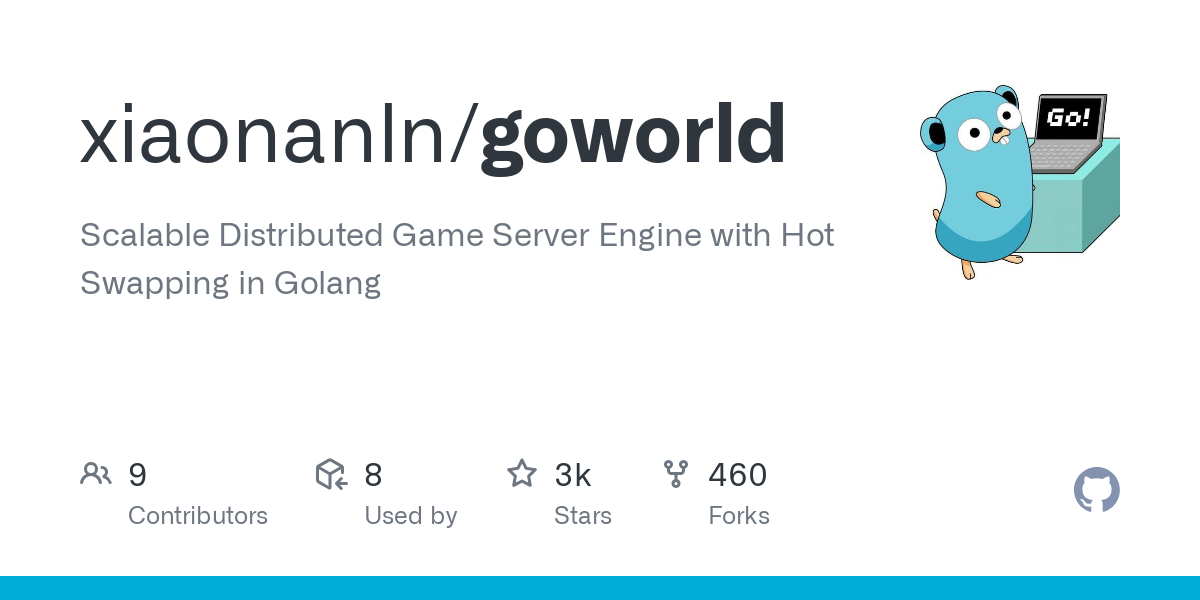
8- Nano
Nano is an easy to use, fast, lightweight game server networking library for Go. It provides a core network architecture and a series of tools and libraries that can help developers eliminate boring duplicate work for common underlying logic.
The primary goal of nano is to improve development efficiency by eliminating the need to spend time on repetitious network related programming.
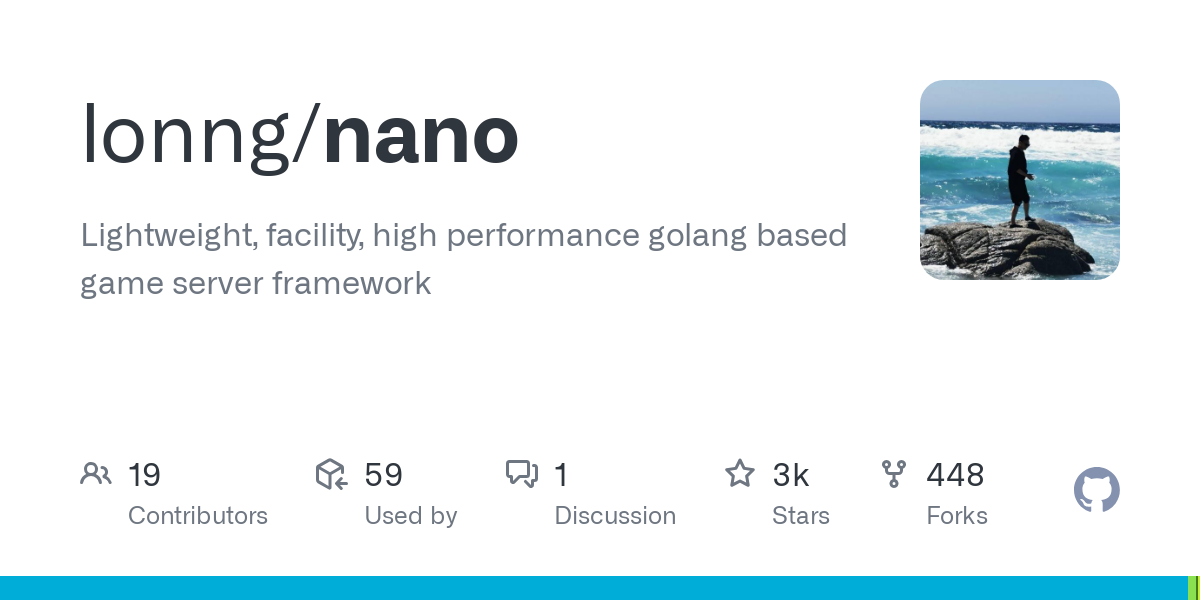
9- Garuna War
Garuna War is a single-threaded C++ game server with a custom UDP protocol for efficient networking. It supports player accounts, lobbies, combat, and progression, paired with a Unity client. Built from scratch, it uses Boost, MySQL, and custom memory management for high performance.

10- Colyseus
Colyseus is the ultimate authoritative multiplayer framework for Node.js, designed to supercharge your game development journey. With SDKs for Web, Unity, Defold, Haxe, Cocos, and Construct3, it’s versatile enough to fit any project.
Colyseus simplifies real-time and turn-based game creation by offering synchronizable data structures, seamless matchmaking, and effortless server-to-client state synchronization (delta-compressed for efficiency).
Built on WebSocket communication, it provides a clean, intuitive API for both server and client sides. Scale vertically or horizontally to meet your game’s demands.
Whether you’re crafting casual multiplayer games or competitive eSports platforms, Colyseus empowers developers with a reliable netcode and matchmaking solution—your next big idea just found its perfect match!
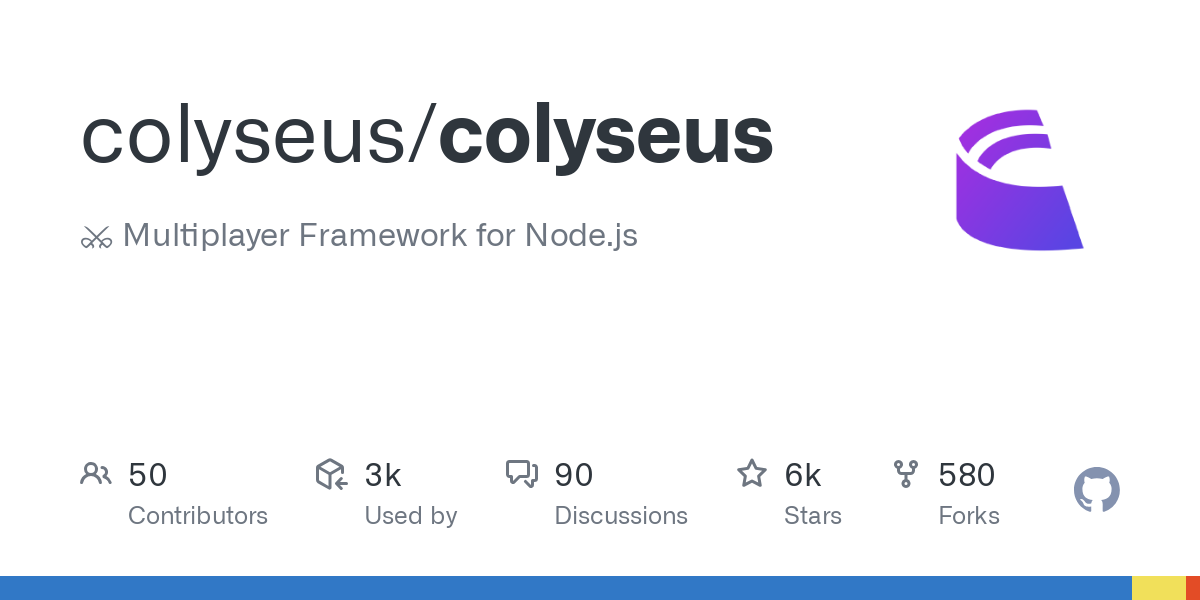
11- Apollo
Apollo is a high-performance, modular RuneScape emulator with a collection of utilities for managing data files and plugins. It is written using Java and works seamlessly on Linux and Windows servers.
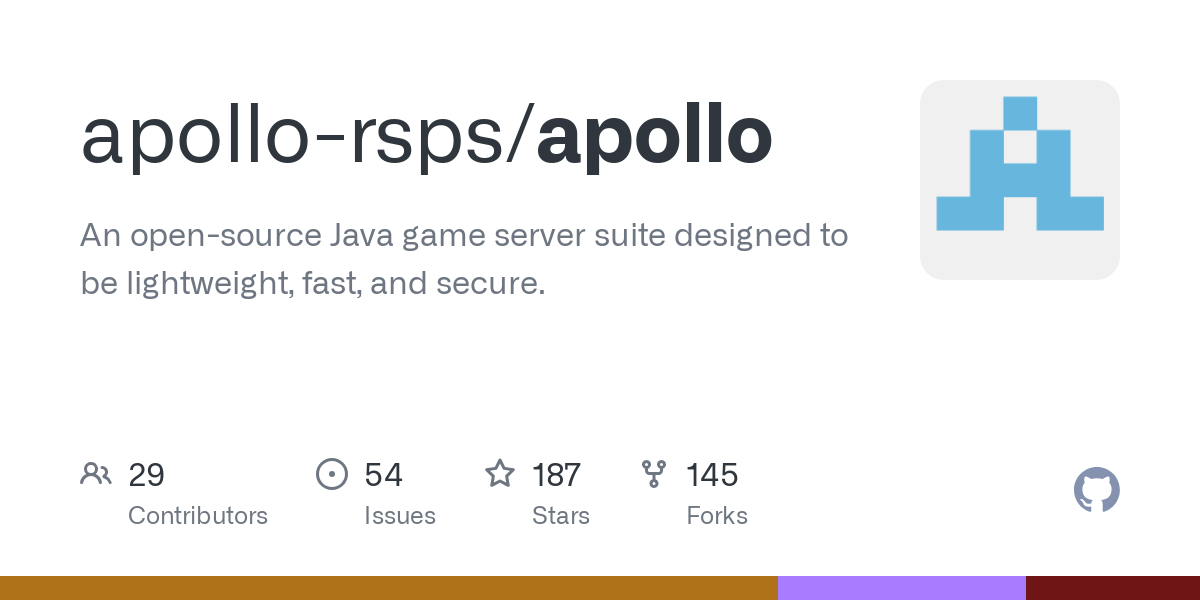
12- Talo Game Services
Talo Game Services offers seamless integration for Godot and Unity developers, providing tools and assets to enhance game development. It overs amazing tools to add to your tools like statistics, analytics and leaderboard.

13- OpenKruiseGame
OpenKruiseGame (OKG) is a multicloud-oriented, open source Kubernetes workload specialized for game servers. It is a sub-project of the open source workload project OpenKruise of the Cloud Native Computing Foundation (CNCF) in the gaming field.
OpenKruiseGame makes the cloud-native transformation of game servers easier, faster, and stabler.
14- OwnServer
This is a free and open-source tool that enables you to expose your local game server to the internet. This app aims to minimize cost and effort to prepare local game server like Minecraft, Factorio, RUST and so on.
Its features include:
- Expose your local TCP/UDP endpoint to the Internet
- Offer GUI client for game server for Minecraft, factorio, RUST, etc.
Final Works
Open-source game servers are more than just tools—they’re your secret weapon for building incredible multiplayer games. From smooth multiplayer functionality to addictive leaderboards, insightful stats, and robust analytics, they give you everything you need to create a game that players will love. And the best part? They do it all without breaking the bank.

